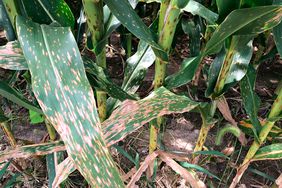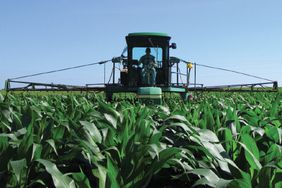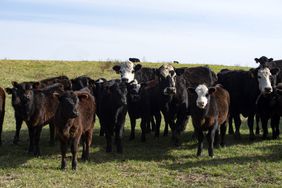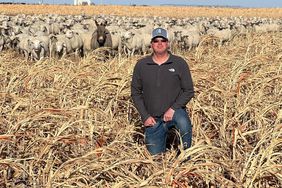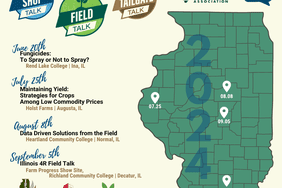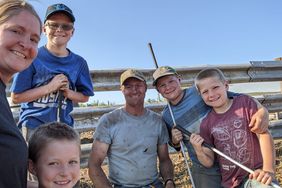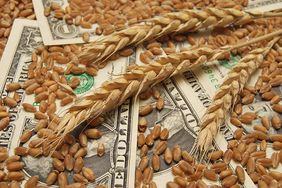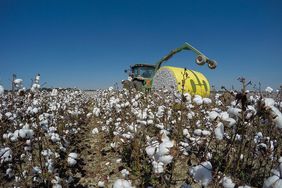:max_bytes(150000):strip_icc()/miscanthus-ef38dddc14db4436ba621a8a8202b79d.jpg)
Farmers thinking about diversifying can look to one emerging crop that literally towers over other specialty crops.
Giant miscanthus, specifically the "Freedom" variety, has been planted across eastern North Carolina. This perennial can grow 12 feet tall and once established, can produce for 30 years.
One of the crops grown as part of the Bioenergy Research Initiative, miscanthus was seen as an alternative to corn for making ethanol. North Carolina farmers don't grow enough corn to meet demand from the state's livestock industry so there is a need for alternative biofuel sources. Researching how to grow miscanthus and developing the technology to make ethanol from the crop has been a focus.
Specialized equipment was developed by AgGrow Tech, an agribusiness that focuses on sustainable and renewable crops, to plant rhizomes in rows across the field. It takes three years for the plants to fill in, but once established, pesticides aren't needed because the crop crowds out any weeds. It's planted in the spring and grows through the fall, drying down naturally. From January through April, when many crops are being planted, miscanthus is harvested.
Silage equipment is used to harvest miscanthus. This has given area farmers growing clary sage an opportunity to make money custom harvesting miscanthus during a time when their machines would normally be sitting still.
On Kornegay Farm in Mount Olive, where the miscanthus had been harvested the day before, a hay baler was at work making large bales of the plant material left behind. Miscanthus was an opportunity for Donnell Kornegay to diversify the farm started by his grandfather. With two sons coming behind him, he's trying different things to keep the farm viable for the next generation.
Over time, making biofuels with miscanthus continued to fail so research shifted to identifying other markets. With wood prices increasing and a demand for wood products growing, miscanthus has filled a void. An alternative to wood shavings, it has found a strong market in the poultry industry as bedding in chicken and turkey houses. It's also valuable for erosion control as an alternative to straw bales. The large bales I saw were destined for a paper mill.
These growing markets are making giant miscanthus a viable crop for farmers looking to diversify.
:max_bytes(150000):strip_icc()/miscanthus20closeup-4c17bae42cf0471e9537a06fd71db696.jpg)


